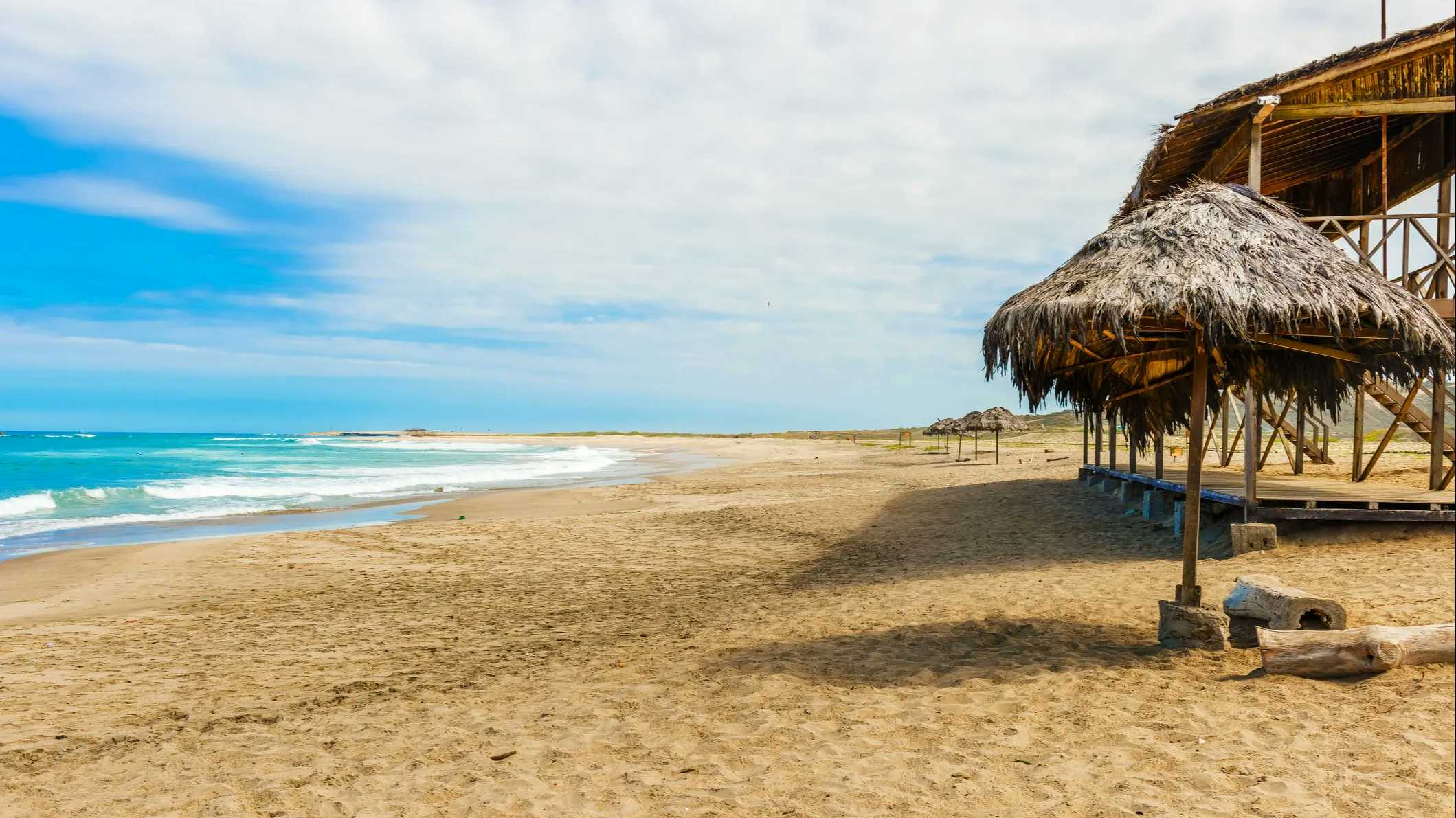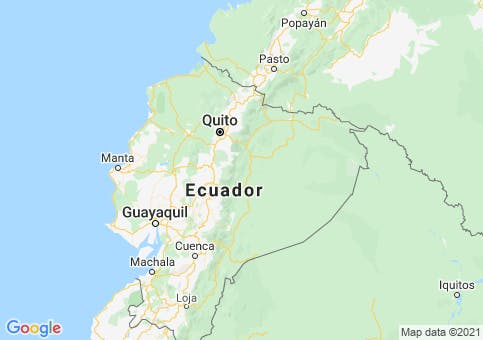Caution on Ecuador Today (Early 2024): Ecuador remains a beautiful, friendly, good-value country where, for at least two decades now, it’s been possible to enjoy a high quality of life for relatively little.
But the political situation there became volatile in January 2024 as the government began to take on drug cartels who’d been moving in. While reports from our contacts on the ground in the communities we recommend say, on balance, they still feel safe… we here at IL feel it prudent to issue a caution to folks considering Ecuador as a place to move it: It’s probably best to hold off heading there today and wait for things to calm down a bit.
Again, the people of Ecuador are as lovely as they’ve ever been. And expats in places like Cuenca and Cotacachi report that they feel safe. But the situation is in flux, and so our guidance is to use caution and perhaps wait to see how things shake out before you pack your house up and move.
Get Your Free Ecuador Report Here
Get Your Free Ecuador Report Here
Learn more about Ecuador and other countries in our daily postcard e-letter. Simply enter your email address below and we'll send you a FREE REPORT - Ecuador: Live Like Royalty on Your Social Security.
By submitting your email address, you will receive a free subscription to IL Postcards and special offers from International Living and our affiliates. You can unsubscribe at any time, and we encourage you to read more about our Privacy Policy.
Sell your winter clothes...and get ready for the adventure of a lifetime in the Land of Eternal Spring. Every cliché you've heard about living large on little...on even a retiree's budget...is true in Ecuador.
Ecuador lies in the northwestern corner of South America, bordered by Colombia to the north, Peru to the south and east, and the Pacific Ocean to the west. At just 175,807 square miles (about the size of Nevada) Ecuador’s small size belies its incredible diversity.
The Andes Mountains form Ecuador’s backbone, and from the top of Mount Chimborazo at 20,600 feet (6,310 meters), the mountains descend on the east to dense tropical rainforests and on the west to balmy Pacific beaches. In between, you’ll find more climates, cultures, and natural wonders than almost any place on earth.
Envision your dream location—an unspoiled beach, a bustling city, university town, quiet mountain village—Ecuador has them all. Choose the place that’s right for you and start enjoying a better quality of life now.
Fresh fruits and vegetables—clean air and water—year-round temperate climate—no wonder so many expats living in Ecuador say they feel better than they have in years.
Healthcare in metropolitan areas is top-notch with costs a fraction of what you would pay in North America. And now all residents are eligible to join the country’s Social Security healthcare system with premiums of less than $80 a month for a couple.
Ecuador offers special benefits to residents aged 65 and older. Public transportation is half price, airfare (even when flying internationally) is significantly discounted, and seniors receive a monthly refund of sales tax paid. Plus you get to go to the front of the line at the bank and grocery store!
Whether you want to live, invest, vacation, retire or simply relax in Ecuador, you’ll find the perfect combination of climate, culture, and affordability to make your dreams come true.
Book your flights and come take a look at all that Ecuador has to offer. The retirement life you’ve dreamed of is here waiting for you.
The Pros and Cons of Life in Ecuador
By Jim Santos
Anyone considering a move overseas needs to take a good, hard look at the advantages and disadvantages of life in their target country. It is not always an easy process, especially when it comes to the incredibly diverse destination of Ecuador. It is also highly personal, as often your biggest “pro” is someone else’s “con”—and vice-versa. Here are some examples of pluses that may be minuses, and downsides that may be upsides.
PRO - There are so Many Places to Choose From
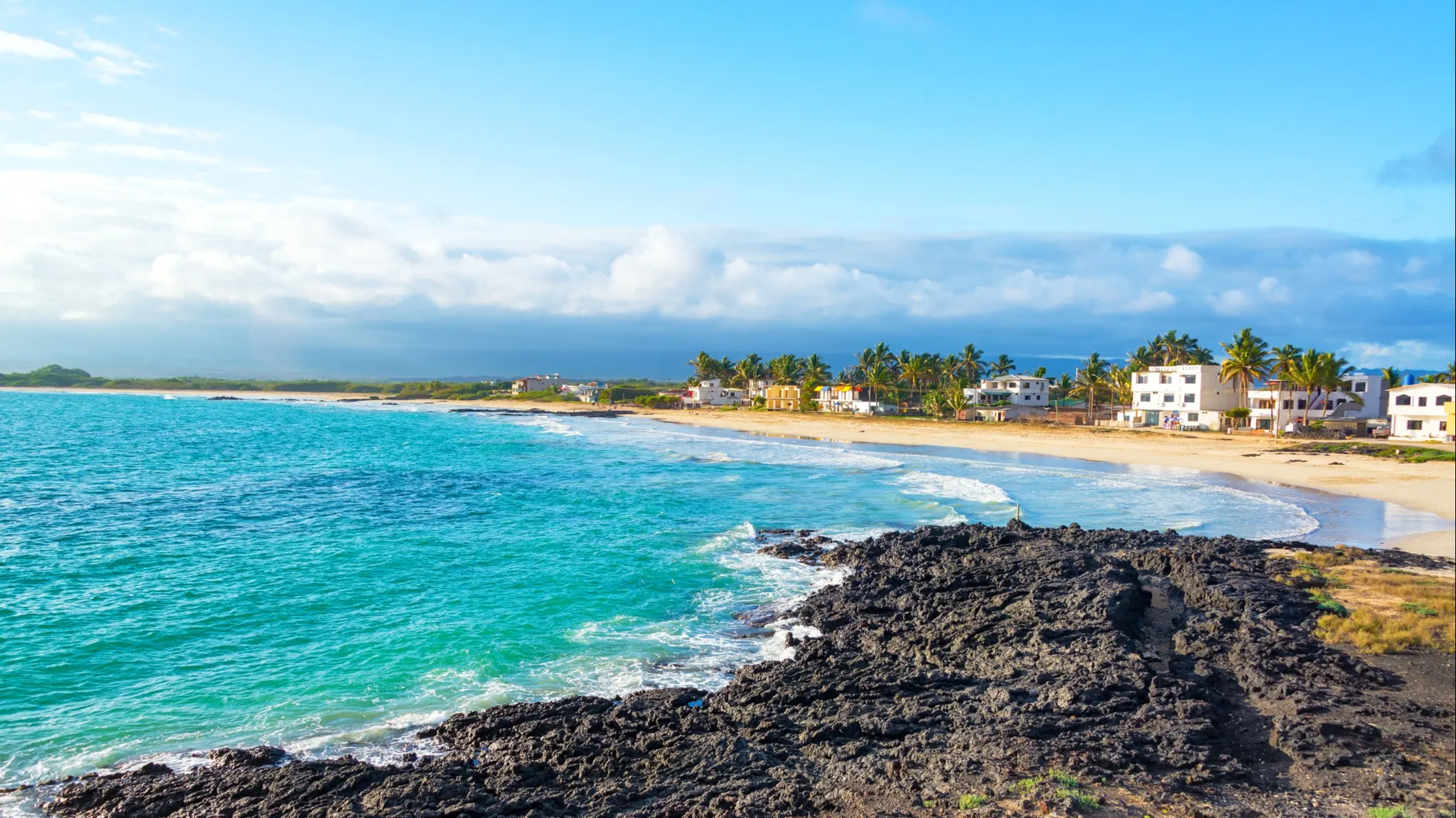
It is true that Ecuador has a variety of climates and lifestyles available to the potential expat. There are potential homes on the Pacific Ocean ranging from small villages of a hundred families up to cities of a half-million; and from lush, tropical forest to drier desert regions. In the Sierras, you also can find a plethora of beautiful places, and pick the altitude to match your preferred climate.But having so many options can be a double-edged sword. How do you choose just one? This can be especially hard for couples, when you run into the “I like the mountains but my spouse likes the beach”, or “he’s a city-person, I like the country” kind of disagreements.
Fortunately, at about the size of Colorado, Ecuador is small enough that no decision has to be final. If you are renting, it is easy to try several places for a few months or even years at a time, until you find the place that is “just right.” Even if you purchase a home, the cost of ownership is low enough to justify spending a few months of the year exploring life in other parts of Ecuador.
Get Your Free Ecuador Report Here
Get Your Free Ecuador Report Here
Learn more about Ecuador and other countries in our daily postcard e-letter. Simply enter your email address below and we'll send you a FREE REPORT - Ecuador: Live Like Royalty on Your Social Security.
By submitting your email address, you will receive a free subscription to IL Postcards and special offers from International Living and our affiliates. You can unsubscribe at any time, and we encourage you to read more about our Privacy Policy.
CON – I Miss the Change of Seasons
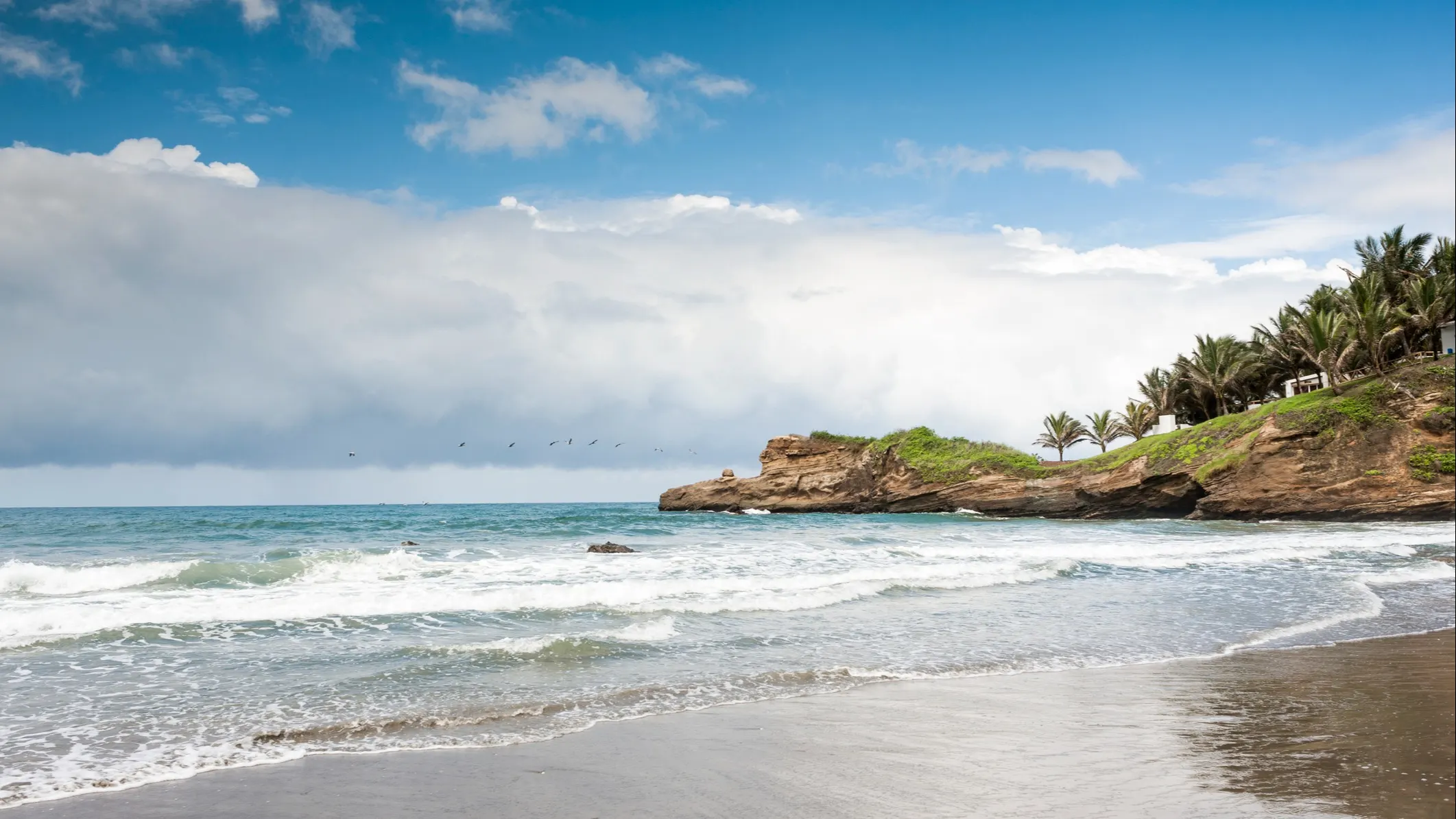
This is something that expats hear from friends and family all the time—“I enjoy the change of seasons, I think I would miss that.” I must admit, there is some truth to that. There is a kind of a changeless quality associated with living this close to the equator. After all, our days and nights are always about 12-hours each, regardless of the time of the year. Our temperatures over the course of the year may vary as much as 10 F to 15 F, but the change is so gradual between “summer” and “winter”, that it is hard to notice. Even a difference like rainy season versus. dry season doesn’t mean a lot in parts of the Pacific coast that rarely get more than 5 inches of rain all year.
But do expats really miss the seasons? Do they miss raking and bagging leaves, or yearn for the days when they had to put on boots, gloves, and a coat to go shovel snow off the driveway? Do they pine for freezing rain and icy roads? I don’t think so. I think most people believe they would miss looking at the changing fall colors or admiring the beauty of a fresh snowfall from the comfort of a lounge chair by the fire.
If that’s the case, then the good news is that there is plenty of scenic beauty in Ecuador to satisfy any nature-watcher. Verdant valleys, stunning waterfalls, deep blue-green ocean—and even some snow-capped mountains—are waiting for you.
PRO – The Cost of Living is Low
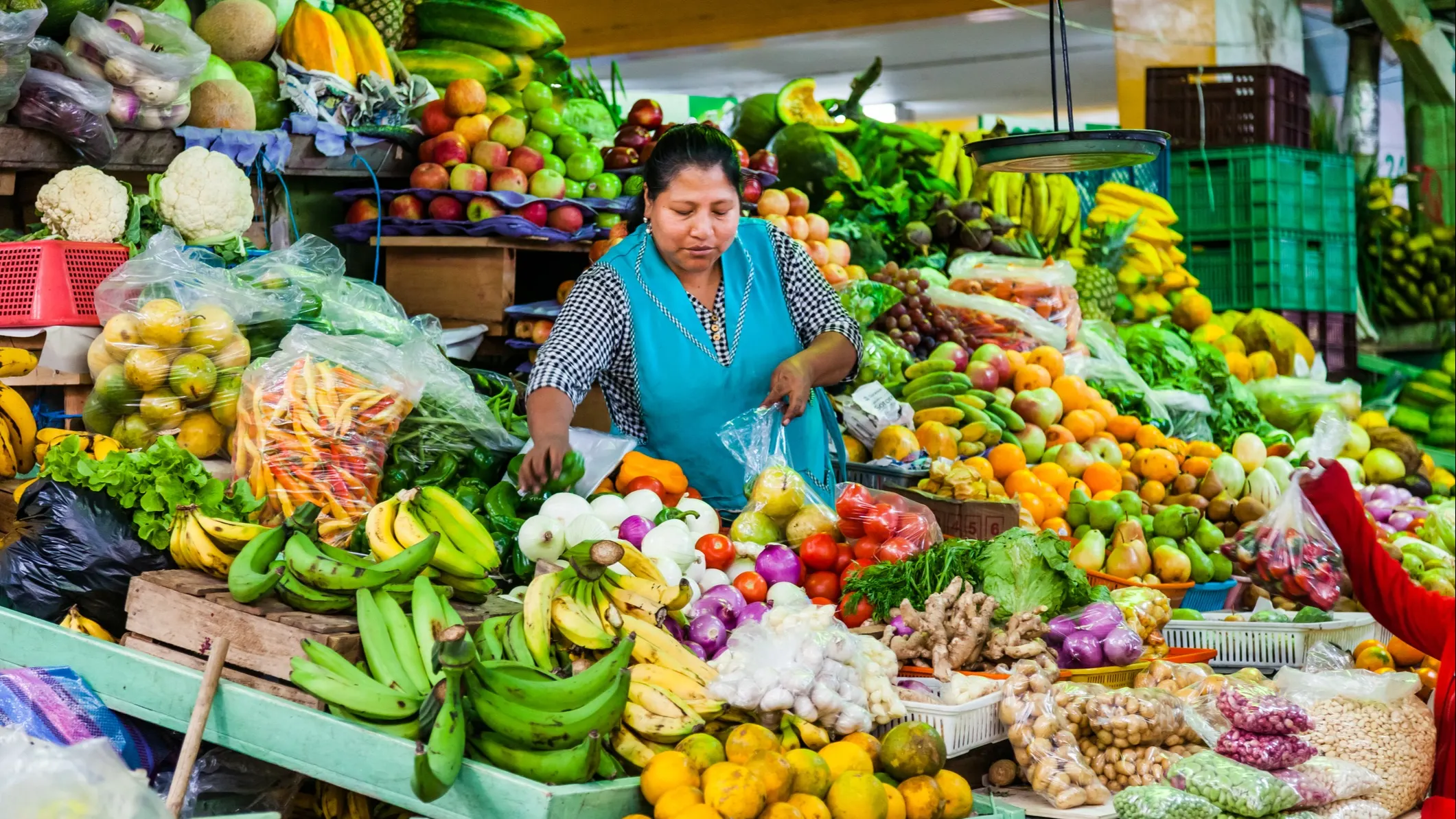
This is for many the number one reason for moving to Ecuador—the lower cost of living. It can be a tremendous advantage, in particular if you are on a fixed income. Rental prices are low, and often include furnishings. If you own, your property taxes will be a few hundred dollars (or less) a year. Local mercados offer fresh fruits and vegetables year-round, at prices so low you will not be able to carry what $15 will buy. In many areas, you can live without heating or air conditioning, and even a car can be an optional expense.
However, it is important to remember that in order to get the most out of that low cost of living, you may need to make some changes to the way that you live now. Take food, for example: produce and many food items are not only much cheaper at local mercados, they are probably also of much better quality than what you are used to. But if you want to continue eating processed foods purchased at the modern supermarkets—particularly if you insist on American brand name products —you will end up spending more on your food budget.
When it comes to transportation, buses are 30 cents or less, and it is rare to have a cab cost more than between $2 and $5, so that is another big money-saver. If you choose instead to own your own vehicle, you will be pleased to find that gasoline sells for $1.48 a gallon, but you will be less pleased to find that most automobiles cost as much as 50% to100% more than in the U.S. due to import fees.
Here again, even that downside has an upside. Cars are more expensive here, but they also retain their value better. It is not unusual to own a car for five years, and then sell it for almost the full purchase price.
CON –Learning Spanish
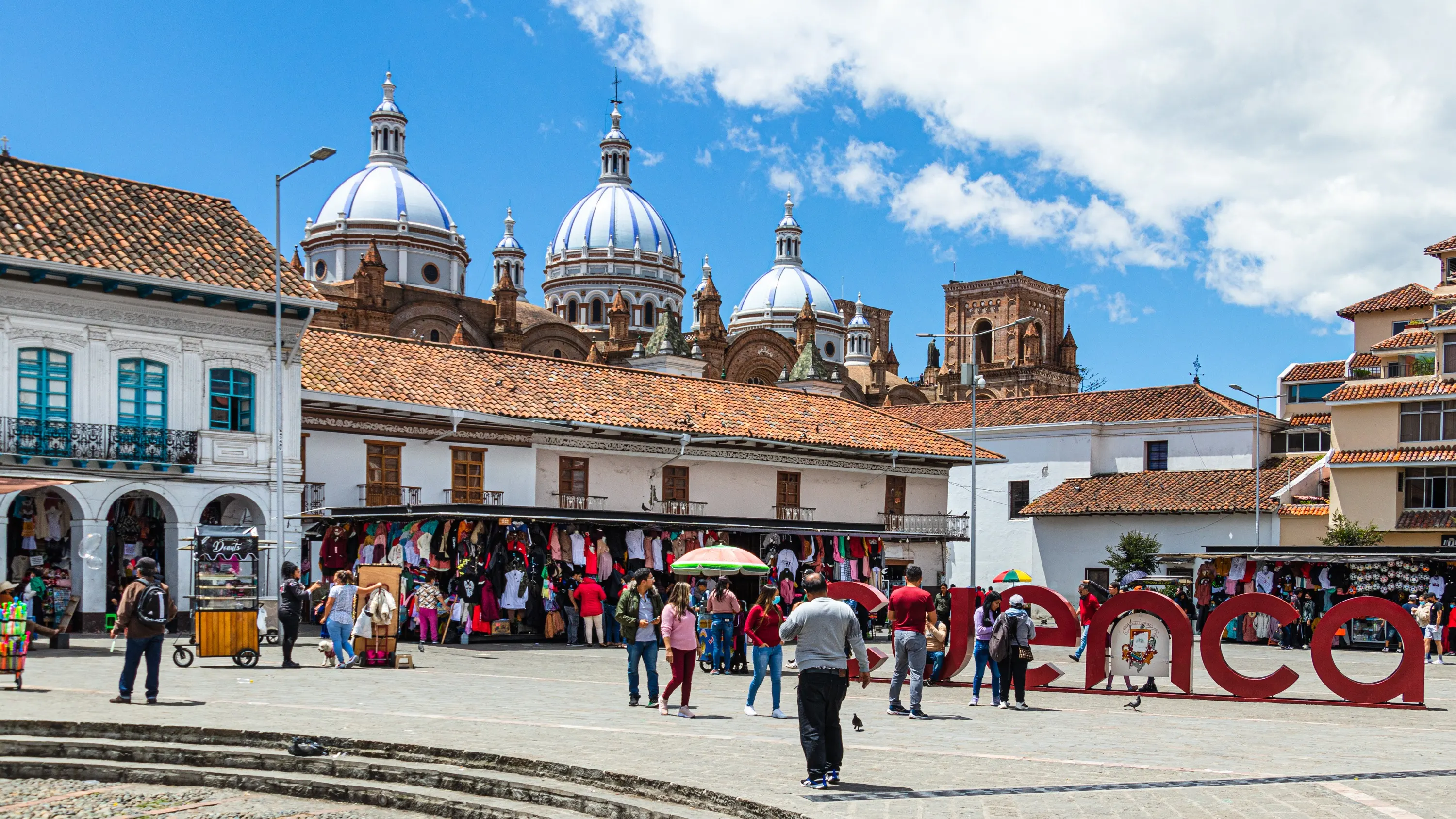
The biggest stumbling block for many expats is the language barrier. If you didn’t have Spanish classes in high school or college, the idea of learning a new language at age 60 or older can be a daunting thought. While there are many places in Ecuador with big and supportive expats communities, and bi-lingual folks that can be hired for around $10 an hour to help with chores like opening bank accounts, trying to live your day-to-day life can be frustrating at first.
It is bad enough when you feel you cannot use the phone, or have difficulty communicating with a taxi driver or store clerk, but what about things like talking to a doctor, or a policeman? It is easy to feel isolated and limited when you cannot speak the local language.
The reality though is that most people can in fact learn another language, at least enough to get by in a foreign country. You may never be fluent, but it is surprising how far you can get by learning to use just a dozen or so verbs, and building a small vocabulary of the things you see or do in your daily life. Sure, it may not be easy, but the rewards are worth the effort.
If you come to Ecuador and speak bad Spanish, you will find the locals do not mind your bad pronunciation or faulty grammar. In fact, they will be pleased that you are making an effort to speak to them in their native tongue. It is surprising how many times an Ecuadorian will see it as a chance to practice their own English skills.
Better yet, no matter how much you actually learn, there is plenty of research to show that just making the attempt to learn another language is good for your brain, and may even help prevent the onset of cognitive degenerative diseases. And besides, you’ll finally understand what Ricky Riccardo was saying to Lucy for all of those years.
It is definitely important to do your due diligence and look at all of the pros and cons while you consider making Ecuador your new home. Just keep in mind as you do your research that moving overseas is not just a transformative experience, it is also a very personal one. Don’t be surprised if you find that the things you think will be your biggest challenges turn out to be your most rewarding opportunities.
Get Your Free Ecuador Report Here
Get Your Free Ecuador Report Here
Learn more about Ecuador and other countries in our daily postcard e-letter. Simply enter your email address below and we'll send you a FREE REPORT - Ecuador: Live Like Royalty on Your Social Security.
By submitting your email address, you will receive a free subscription to IL Postcards and special offers from International Living and our affiliates. You can unsubscribe at any time, and we encourage you to read more about our Privacy Policy.
Progress in Ecuador
By Jim Santos
Often when I speak to people at International Living conferences, or reply to emailed questions, I get the feeling that many North Americans have a mental image of Ecuador as a rather backward country—charming, to be sure, but other than a few large cities, a nation mired in the past.
After living in Ecuador for six years and visiting much of the coastal and Andean areas, I am happy to say that this is a misconception. Sure, there are some wonderfully quaint small villages where people live much as their grandparents lived before them, but there is much more to the story than that.
Over the last decade Ecuador’s middle-class has been expanding, and it seems everywhere you go there is new construction taking place. Not just private enterprise building homes and condos either; the government has funded many projects to upgrade drainage and roads, expand and improve the electrical grid, bring fiber-optic Internet to more places, and provide new and better public use areas.
Here’s a short video showing just a little of the progress we have witnessed in coastal Ecuador.
